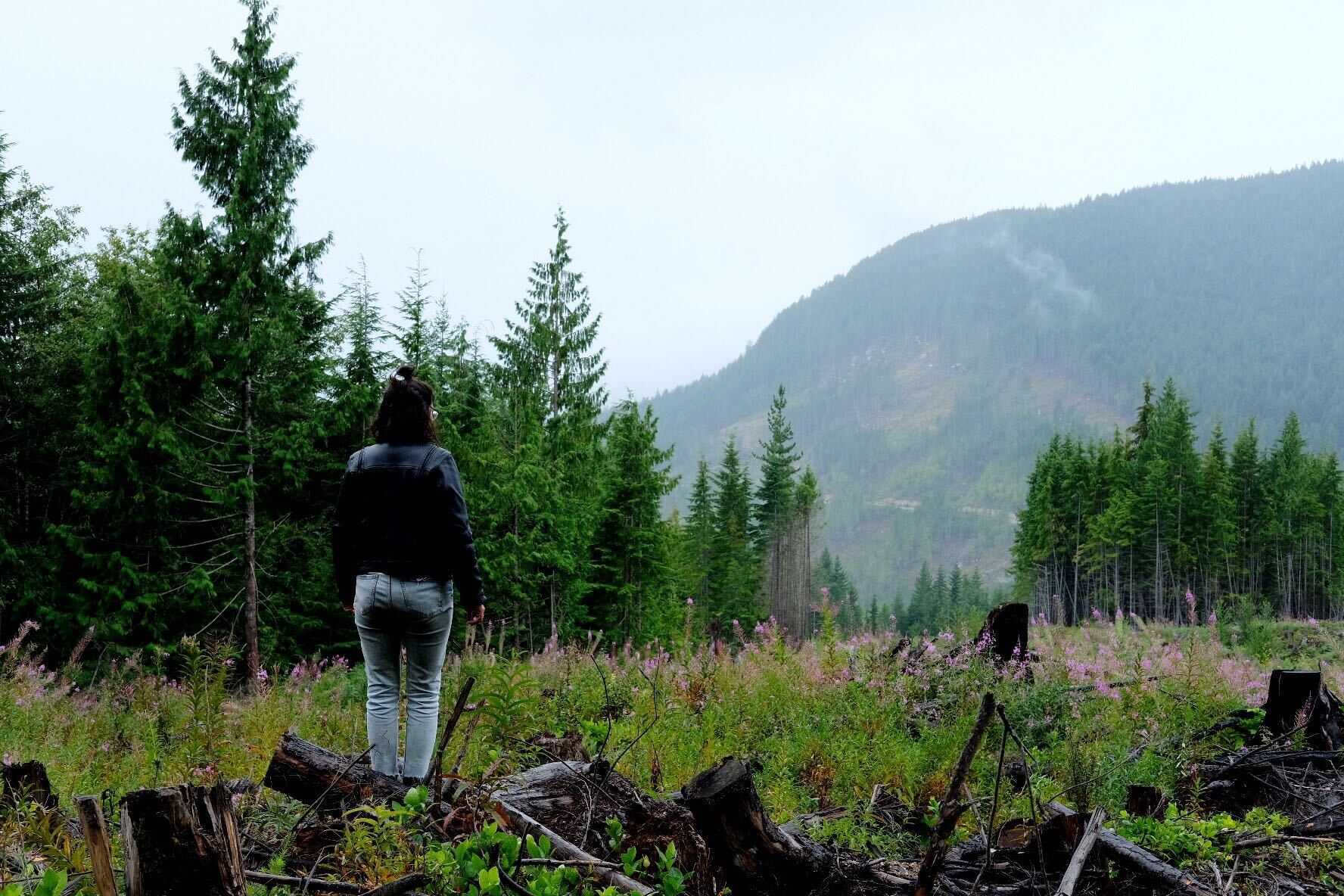
This photo was taken by Jacqueline Jennings, Director, Fireweed Fellowship.
One of the goals of the First Peoples Enterprise Accelerator Program is “to design and deliver entrepreneurship programming with an Indigenous lens, upholding Indigenous knowledge and worldview.” With our current partner, the Fireweed Fellowship via Raven Indigenous Capital partners, we talk a lot about decolonization: as a principle, a goal, and a practice. We talk about it from both a programmatic lens and a personal lens, reflecting on our own work in decolonizing ourselves. There are internal and external pressures to get this decolonization thing right (whatever “right” means). We’re both motivated and—equally, if not more so—intimidated by ancestral accountability and responsibility to our community. Not to mention, this work takes place in the midst of piecing together our own individual broken histories and identities as Indigenous people.
In real time, we are simultaneously unlearning and uncovering knowledge systems whilst creating a new program.
The more we talk about it, build it into our design, reflect on the process and speak transparently about how we’re trying to live out and develop into this goal, we realize that there is no right way; and no one has the answer. That, in fact, striving for this one “right” answer implies that other ways are wrong. This creates a dichotomy that breeds perfectionism and shame: two products of the very system we’re trying to disentangle ourselves from.
With this self-granted permission to take it easy on ourselves, we’ve begun to embrace our approach to the work and trust our process. This exercise in trust became especially clear during the design phase for the Fireweed Fellowship. —
Designing programming is often a flurry of activity motivated by deadlines and funding pressure. While we aren’t immune to either of these forces, our biggest challenge has been less visible but far more pervasive—namely, the dominant colonial value of outputs over outcomes, with outputs being the key indicators of productivity. This overvaluation of outputs influenced our ability to trust the relational approach that we build our work upon.
As two urban Indigenous womxn who grew up outside of our traditional cultures and communities, we are piecing together ancestral wisdom and ways of being from those who came before us. To tap into that knowledge, our process involves spending an extended amount of time together sharing food, laughs, stories and music, as well as time on the land. We talk about our intentions and what our *dream* decolonized accelerator program looks and feels like, drawing inspiration and guidance from mentors, wisdom keepers and the land. We talk about our hopes and fears in equal measure, putting all of it on the table. We take our responsibility to this work and all involved very seriously, and centre the wellbeing of the entrepreneurs at every step, to the best of our ability.
Being in relationship with one another takes up about 80% of our time together. And on the days where those colonial constructs of productivity and perfectionism creep in, we can forget that this is work. We can feel guilty about not “producing” anything, question the value of our mutual storytelling, and lose sight of how all of this is work—in fact, it’s the work, from a relational and decolonial perspective.
Dropping into relationship with others requires an opening of the self in order to receive. This time shared with one another provides us with information which then shapes our work. However, we can’t access that information without carving out the time and space for it to emerge, or without opening up and deeply listening to each other and the land. Only then do we get to that other 20%, that flurry of tangible outputs. Putting Sharpie to Post-it, and feeling it all flow like water.
Relationality is a common principle amongst most Indigenous value systems, and it is foundational to our process. Mapping out Fireweed’s program content was one of our most powerful sessions yet. It was the final reminder that I, personally, needed to let go and “trust the process”. We closed our last day together with a sacred fire, to which we fed medicines, prayers and a few more stories and laughs.
We give thanks and gratitude to all of our teachers, great and small, and we invite the first cohort of the Fireweed Fellowship to join us in decolonizing the entrepreneurship space, together.
